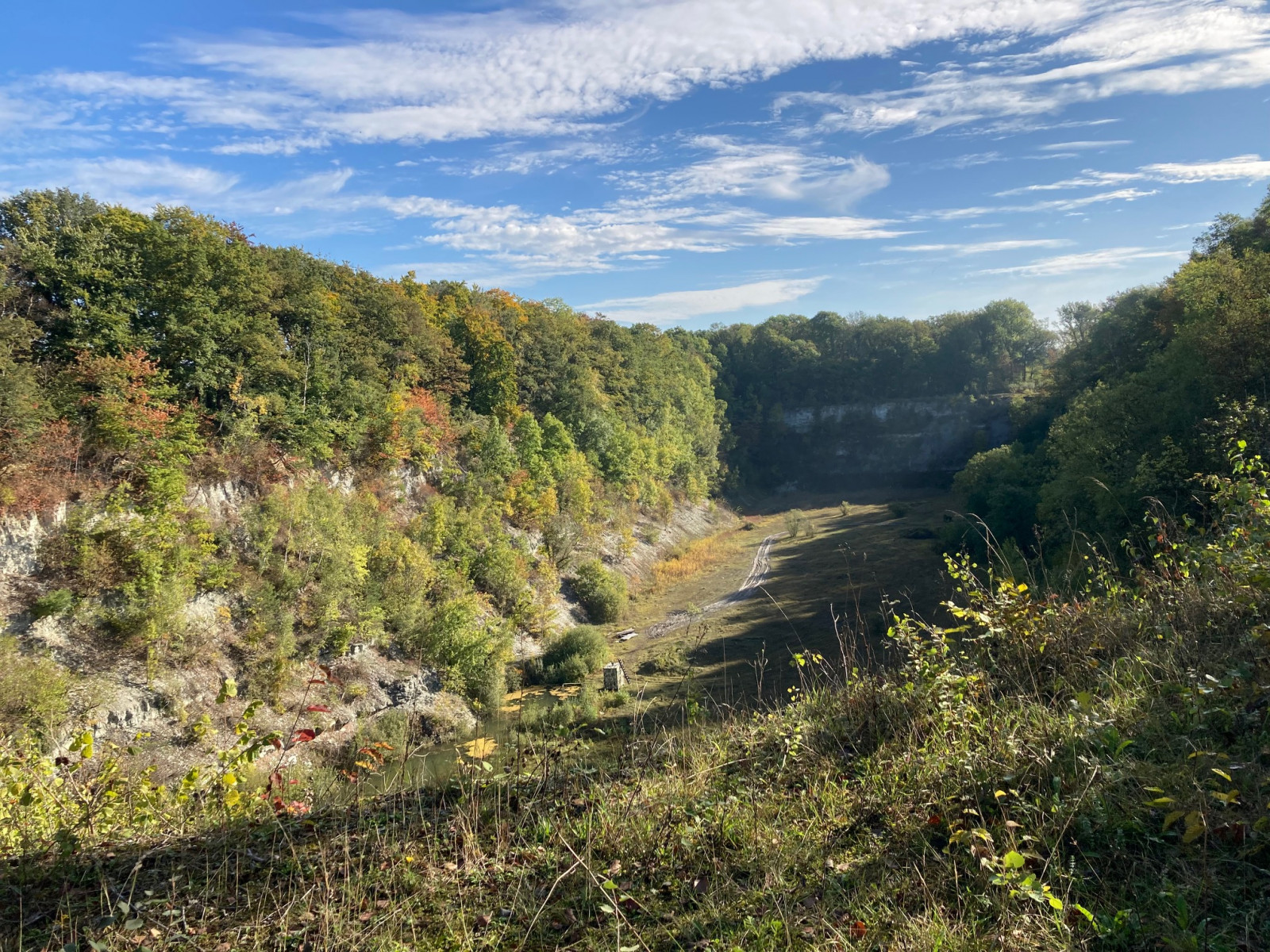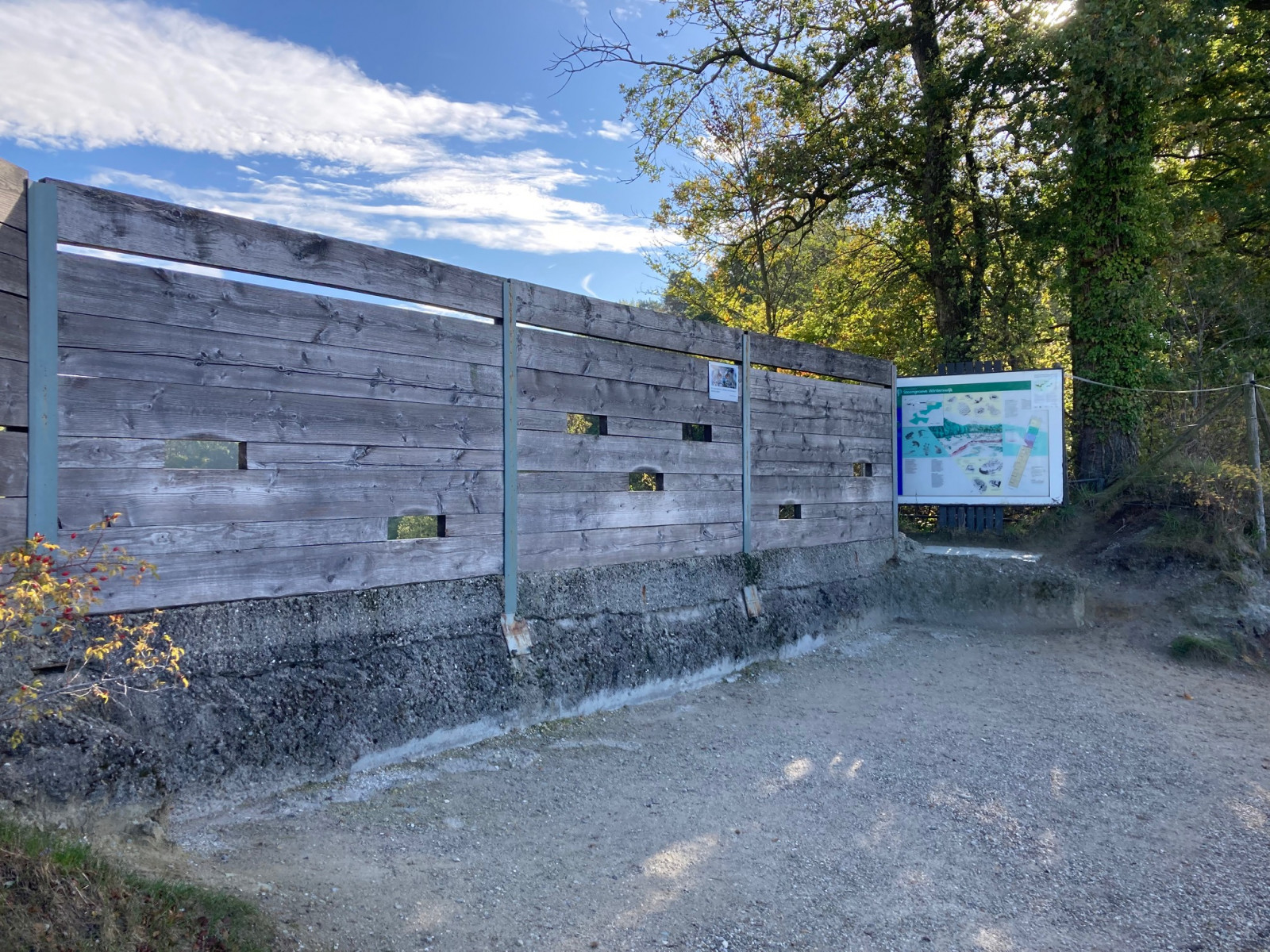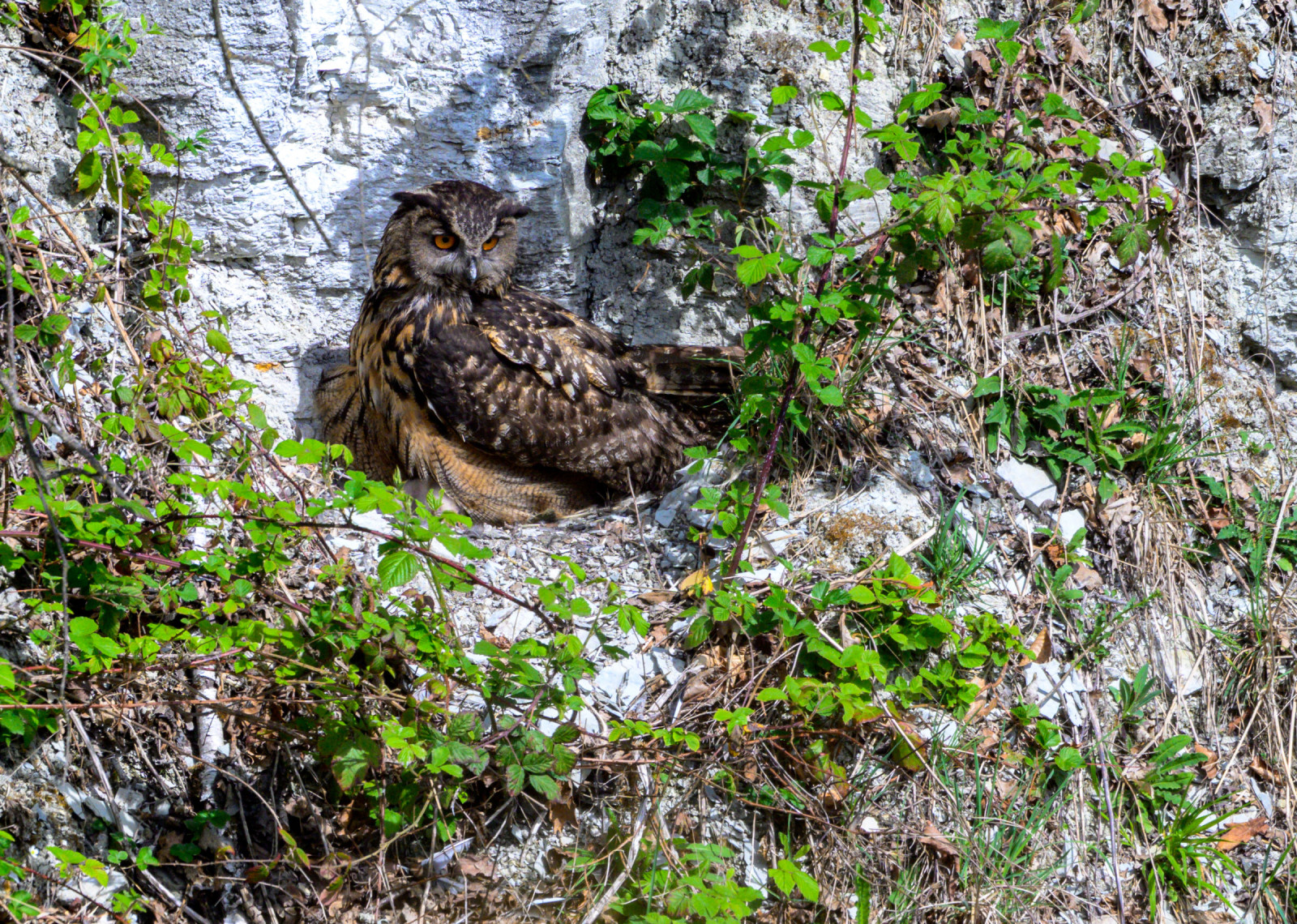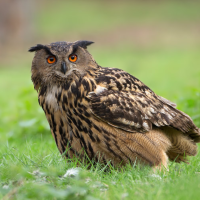Description
The Winterswijk Quarry is an active quarry located east of Winterswijk and is mined for (mainly) limestone. The area is famous for its fossil findings, like bones and fossilized tracks of multiple species of extinct reptiles, called Nothosaurs. The oldest part of the quarry has been given back to nature and is home to a breeding pair of Buhă. An observation screen has been placed near the old quarry to observe the nesting Buhă. They breed on a small ledge on the northwestern part of the quarry wall.
Surrounding the valley, extensive forests are located and provide ideal habitat for many species of breeding bird, like Muscar sur, Codroș de pădure and Muscar negru. All five species of woodpecker can be found in the area, like Ciocănitoare pestriță mică and Ciocănitoare de stejar. The quarry itself is also home to Codroș de munte.
The active quarry, west of the Buhă quarry, contains multiple ponds and provide a great habitat for Prundăraș gulerat mic and Codobatură de munte. The scattered bushes and trees near the edge of the quarry are great for Presură galbenă, Silvie de câmp and Silvie mică. In winter, Sfrâncioc mare can be found here too. The quarry provides a great open view of the sky and is therefore a great spot for observing raptors, like Viespar, Gaie roșie and Uliu porumbar.
_________________________
Nederlands: De Winterswijkse Steengroeve is ten oosten van Winterswijk is een van de beste plekken in Nederland om een oehoe in het wild te zien. De groeve staat ook bekend om zijn fossiele vondsten, zoals botten en gefossiliseerde sporen van meerdere soorten uitgestorven reptielen, de Nothosauriërs. Het oudste deel van de groeve is teruggegeven aan de natuur en herbergt een broedpaar Buhă. Bij de oude steengroeve is een observatiescherm geplaatst om het nest van de Buhă te observeren. Ze broeden op een kleine richel op het noordwestelijke deel van de steengroevemuur.
Rondom de groeve liggen uitgestrekte bossen die een ideaal leefgebied vormen voor vele soorten broedvogels, zoals Muscar sur, Codroș de pădure en Muscar negru. Alle vijf soorten spechten komen in het gebied voor, zoals Ciocănitoare pestriță mică en Ciocănitoare de stejar. De groeve zelf is ook de thuisbasis van Codroș de munte.
De actieve groeve, ten westen van de Buhă groeve, bevat meerdere vijvers en vormt een geweldig leefgebied voor Prundăraș gulerat mic en Codobatură de munte. De verspreide struiken en bomen aan de rand van de steengroeve zijn ideaal voor Presură galbenă, Silvie de câmp en Silvie mică. In de winter is Sfrâncioc mare hier ook te vinden. De groeve biedt een open zicht op de lucht en is daarom een uitstekende plek voor het observeren van roofvogels, zoals Viespar, Gaie roșie en Uliu porumbar.
Details
Access
The area is easy accessible due to the parking lot near the road and the unpaved pathway towards the observation screen.
_________________________
Nederlands: Het gebied is goed bereikbaar door de parkeerplaats bij de weg en het onverharde pad richting het observatiescherm.




